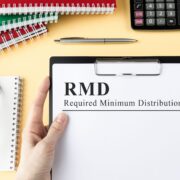Trump Advantages for Weisselbergs Consisted Of Free Lease, Tax Preparer Dunkin’ Brands is going personal in an $8.8 billion deal by Arby’s owner– why it’s not a shock 4 Tax Triggers New Investors Need to Know About
Many Americans began investing for the very first time throughout the pandemic, however, despite the fact that their trades might have been free, the cash involved might soon include a bill from the Internal Revenue Service. If you’re a new investor, here are 4 things that could set off a tax-related hit– and what tax pros state you can do to soften the blow.
1 You sold shares at an earnings
What might happen: You might owe capital gains tax.
If you attempted your hand at stock-picking in 2020, you may need to give the IRS a piece of the make money from your stock sales. What capital gains tax rate you pay can depend on just how much you made, what other earnings you have, your tax-filing status, and the length of time you owned the investment.
“You could pay a pretty large cent depending on what your tax bracket is,” states Naomi Ganoe, a qualified public accountant. Ganoe is handling director and private customer service practice leader at CBIZ MHM in Akron, Ohio.
How to cope: One strategy is tax-loss harvesting, which involves selling poor-performing investments at a loss and using those losses to offset your revenues. Another alternative: Hold shares for a minimum of a year to get approved for more-favorable long-lasting capital gains tax rates rather than greater short-term capital gains tax rates. Tread carefully, however, Ganoe states.
“You never desire to do everything just for the taxes,” she says. “You want to look at the entire situation.”
2 You received dividends
What might occur: The IRS might desire a cut of your dividends — even if you instantly reinvested those dividends and didn’t get any in money, which prevails with mutual funds, for example. It’s a rule that can shock brand-new investors.
“That’s one of the surprises,” Ganoe says. “No money returned to them, now they have got to pay tax on it.”
What tax rate you pay depends upon the nature of the dividend. IRS Publication 550 has the details.
How to cope: Consider doing your trading inside a retirement account such as an Individual Retirement Account, says Gary DuBoff, a qualified monetary organizer, CPA, and principal at MBAF Certified Public Accountants and Advisors in New York City. That method you might have the ability to defer, or in some cases avoid, a dividend tax expense up until you make withdrawals in retirement.

“Look before you jump,” he says. “You do not wish to get into the marketplace not realizing what you’re getting yourself into.”
3 You had more than $200,000 of earnings
What may take place: You may owe a 3.8% net investment earnings tax if your customized adjusted gross earnings are over $200,000 for single filers or $250,000 for couples filing jointly.
“On your investment income, that would be interest, dividends, and capital gains,” DuBoff states.
How to cope: Make certain you take every tax break you receive this year.
“Your itemized deductions or your basic reduction– that could offset your interest, dividends and capital gains,” DuBoff states. “There’s no one size fits all. Everyone is going to be various, so you require to monitor that.”
4 You want to do your taxes
What may happen: Investment-related tax return might suggest investing more time on tax prep this year, or greater expenses for a tax professional to do the work.
For instance, you may need to file a Schedule B type to report interest and dividends you received, and a Schedule D might be in your future if you had capital gains, Ganoe states. You likewise might require to complete extra kinds for the alternative minimum tax.
How to cope: If you’re hiring somebody, keep your documentation in order and get on your tax preparer’s calendar early. Many preparers charge additional for chaotic records or rush tasks, according to the National Society of Accountants. If you’re intending on doing your own taxes, you might need to update to a more sophisticated (and likely more expensive) bundle that can deal with investment-related tax situations. However, don’t wait till the last minute to pick software — prices tend to increase about a month before the tax-filing deadline.























Comments